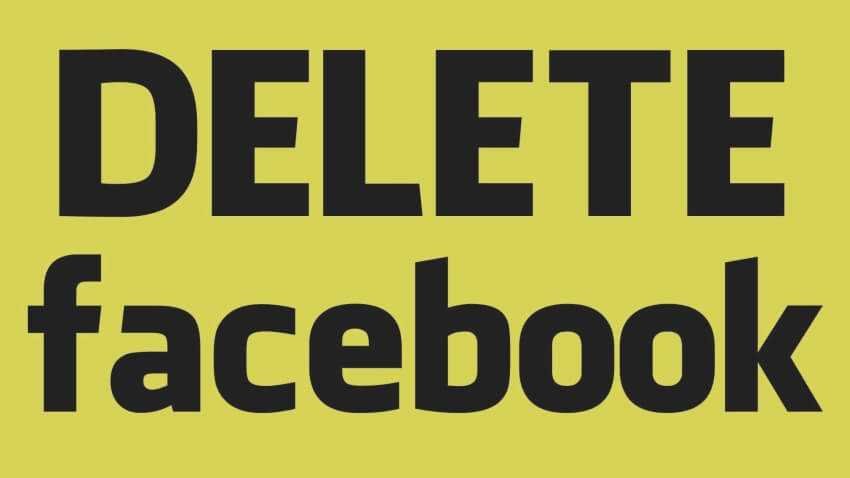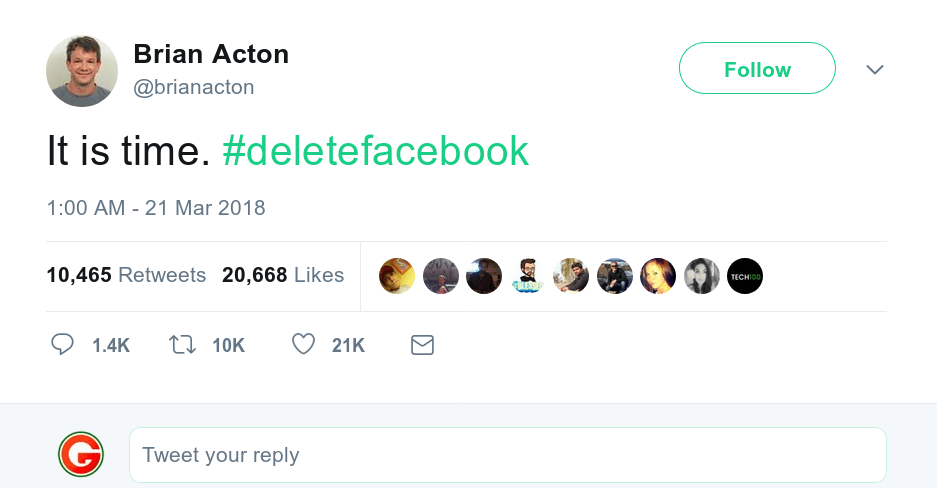After the revelations with her Cambridge Analytica, Facebook is seeing a lot of account deletions these days. One of those who believe that deleting data from Facebook is a very good move is the founder of WhatsApp, Brian Acton.
But here things get complicated as WhatsApp, a leading mobile exchange platform messages, belongs to Facebook…
With a very short tweet earlier today, Acton reported "it's time #deletefacebook," a message that 26.000 + social network members who have followed it apparently felt as a recommendation to abandon the largest social network.
There were no other explanations but after this message, we can understand that Brian Acton is not the biggest friend of Facebook's new direction.
Facebook bought WhatsApp 2014 for 16 billions of dollars, but while co-founder Jan Koum is still part of the company, Acton decided to withdraw last year and invest in the Signal message platform.
The reason for this particular tweet allegedly against Facebook is apparently related to the latest revelations about the role of the social network in the American elections of 2016.
For those who have not attended the events, the analyst company Cambridge Analytica based in London is accused of violating Facebook's terms of service after it managed to obtain and share information from 50 million users without their consent.
The data was used to support Donald Trump's campaign with highly targeted ads for each individual.
Due to the scandal, Facebook shares fell back on 2,6% on Tuesday, and an ever-increasing number of users are deleting their accounts.





